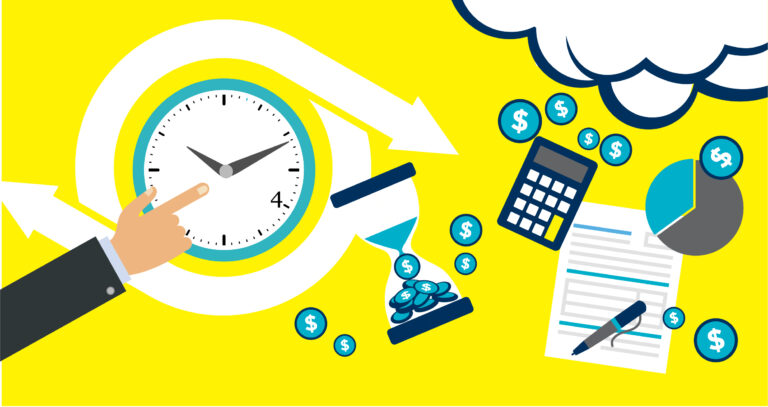The REEF Helpline has been inundated with calls regarding the Coronavirus and its impact on employment. To address some of your questions, please take the time to read the following essential information.
NOTE: This information has kindly been provided to REEF by our friends at Australian Business Lawyers & Advisors.
Q: Should I be talking to my employees about what is going on and how we’re looking to work through the COVID-19 pandemic?
A: The situation is evolving and very fluid and we would urge you to over-communicate right now. Employers who have a plan and are implementing it to balance the business and the employee’s welfare are managing quite well at the moment.
Most management teams are talking daily and communicating to employees every 48 hours as things develop.
Q: I have an employee who has just arrived back from overseas and is self-isolating for 14 days in accordance with isolation protocols. Do I have to pay them?
A: No, you are not required to pay employees in circumstances where a public health order or other regulation has been issued under a Commonwealth, State or Territory law where your employee resides/works.
There is some variation across the States and Territories in relation to the legal mechanism that has been utilised to enforce the 14-day self-isolation requirement. However, where the relevant State or Territory has enacted the requirement into law, employees will not be able to lawfully leave their homes to attend for work and so will not be “ready, willing and able to work” (unless they can perform work from home). On that basis, there is no requirement to pay the employee during the 14-day self-isolation period.
It is possible that testing may become more widely available and you may, in the days to come, be able to determine (negative test) if such an employee can return to work more quickly than the current 14 days.
In most cases, the employee is not “sick” and so they are not eligible for personal leave. Some employers are paying employees out of their accrued personal (sick) leave. Strictly speaking you cannot pay personal leave to an employee, in these circumstances, who is not ill or injured as this is the criteria for personal paid (sick) leave under the National Employment Standards.
Given that (in most cases) you will not be required to pay them during the 14-day self-isolation period, you might choose to adopt one of the following options:
- choose to pay them as a discretionary payment; or
- agree to allow the employee to use their annual leave or long service leave if they have an available accrued entitlement to cover all or part of the period; or
- consider whether you would agree to grant the employee some annual leave in advance (if the relevant Modern Award provides for annual leave in advance); or
- consider whether you would agree to grant the employee long service leave in advance (if the relevant State or Territory long service leave legislation provides for long service leave in advance).
Q: My employee has called in sick. Do I have to pay them?
A: Yes, if they are a full-time or part-time employee and they have accrued personal leave to cover the absence. If they run out of paid personal leave, they may ask to be paid annual leave, if available.
Normal rules apply here whether they have a cold, the flu or are diagnosed with COVID-19.
If the employee has run out of paid personal leave, then the employee will continue to remain absent from work without pay for any period they remain unwell and may return to work after being certified as fit for work.
Q: My employee has been off work because they felt ill and now says they feel fine. However, their doctor will not clear them for work due to the current circumstances regarding COVID-19. Do I have to pay them and for how long?
A: You will need to approach this on the basis of the facts and circumstances particular to the situation. If you have a valid reason to doubt that they are fit to return to work, you can insist on a clearance from their doctor before they return.
While this is being sorted out the employee would remain on paid personal leave.
Q: I have an employee who has been in contact with someone who has been diagnosed with COVID-19. Do I send them home and, if so, do I have to pay them?
A: The employee should be directed to remain away from work and self-isolate. However, if they can get tested and cleared by a medical practitioner as COVID-19 free and fit for work, they may be returned to the workplace.
They may not qualify for testing which will mean they should remain away from the workplace for a period of at least 14 days. In the case of exposure, the employee concerned will likely represent a high risk to fellow workers.
Q: One of my employees has asked to leave work early to pick up their partner, who is feeling ill and has been sent home because they are suspected of having COVID-19. Should I let them go?
A: You should deal with this just like any other request from an employee to urgently assist a partner or family member. However, if the employee is asking for leave because they are required to provide care or support to their partner or family member, then they may take carer’s leave. Where an employee qualifies for carer’s leave, they may access their accrued paid personal/carer’s leave.
An ‘immediate family member’ is:
- a spouse or former spouse, de facto partner or former de facto partner, child, parent, grandparent, grandchild, sibling;
- a child, parent, grandparent, grandchild or sibling of the employee’s spouse or de facto partner.
A ‘household member’ is any person who lives with the employee.
The employee should be paid as if they were taking personal (sick) leave, the minimum requirement being payment at base rate of pay for the employee’s ordinary hours of work in the period.
You may ask for reasonable evidence to justify the absence on carer’s leave.
Q: I have asked my employees to work from home, but one has refused saying their employment contract says they should work from one of our office in a specified location; for example, our “Bankstown office”. What can I do?
A: It is very unlikely that an employment contract would be read in such a constrained way. The request is likely to be a lawful and reasonable request within the context of the employment relationship. Just make sure that you are providing (or paying for) any necessary equipment for them to work from home; computer, internet, phone etc.
You should also undertake some form of risk assessment for the employee working from home to ensure that any ‘in-home’ risks are identified and addressed. A working from home policy is often helpful and may assist. You may also need to consider insurance issues, including workers compensation.
Q: What form of evidence should I ask for if someone says they are feeling ill and suspect that they have COVID-19?
A: COVID-19 is no different to any other illness and the same standard of proof applies for COVID-19 as it would for the flu or a cold.
The Fair Work Act requires that an employee provide their employer with evidence that would satisfy a reasonable person that the employee is absent due to illness or injury. In the current circumstances of the COVID-19 pandemic, we suggest that a greater degree of tolerance is warranted.
Regardless, the health and safety of your workers is paramount and should not unnecessarily be compromised. A clearance should be obtained (including in relation to COVID-19 in particular) before an employee can be returned to the workplace in these circumstances.
Q: If a medical certificate simply says an employee is “fit for work,” will this suffice to allow them to return to the workplace in view of the COVID-19 pandemic?
A: You should not permit an employee to return to the workplace in these circumstances if the employee:
- has exhibited the symptoms of COVID-19; and/or
- has been exposed to an individual who has COVID-19.
An employee who has exhibited the symptoms of COVID-19, should be tested and cleared of the virus before returning to work. Otherwise, the employee should wait at least the 14-day self-isolation period and only return to work if they remain symptom free. If the doctor has certified the employee as fit for work, you could usually assume (particularly in the current environment) that the doctor has considered the risks associated with COVID-19. This might be something you could confirm with the employee’s doctor (subject to obtaining the employee’s authority to do so) before permitting them to return to work if you have any cause for ongoing concern; for example, if the employee presents as unwell or symptomatic.
Q: What more creative things might I do to get through this with my employees?
A: There are a lot of things that might be worth considering at different times. For instance:
- Split rosters to reduce who is in the office at any one time
- Working from home
- Moving to virtual meetings with customers or clients
- Incentivising annual leave; e.g. “take three weeks and we will give you a fourth”
- Providing some support to employees who have to attend the workplace which reduces general community exposure such as providing or buying-in lunch for them
- Exploring whether part-time work options may suit anyone for a period
- Possibly changing operating hours to reflect changes in demand which in some cases may involve an Individual Flexibility Agreement
- Temporary variations to contracted hours of work by agreement with individual employees
- More targeted recognition and reward programs for those frontline workers carrying the business through COVID-19
- Reaching agreement to vary an EA to defer pay increases or to vary other terms (requires approval by the Fair Work Commission)
- Making an application under section 120 to reduce/defer any redundancy payments.


